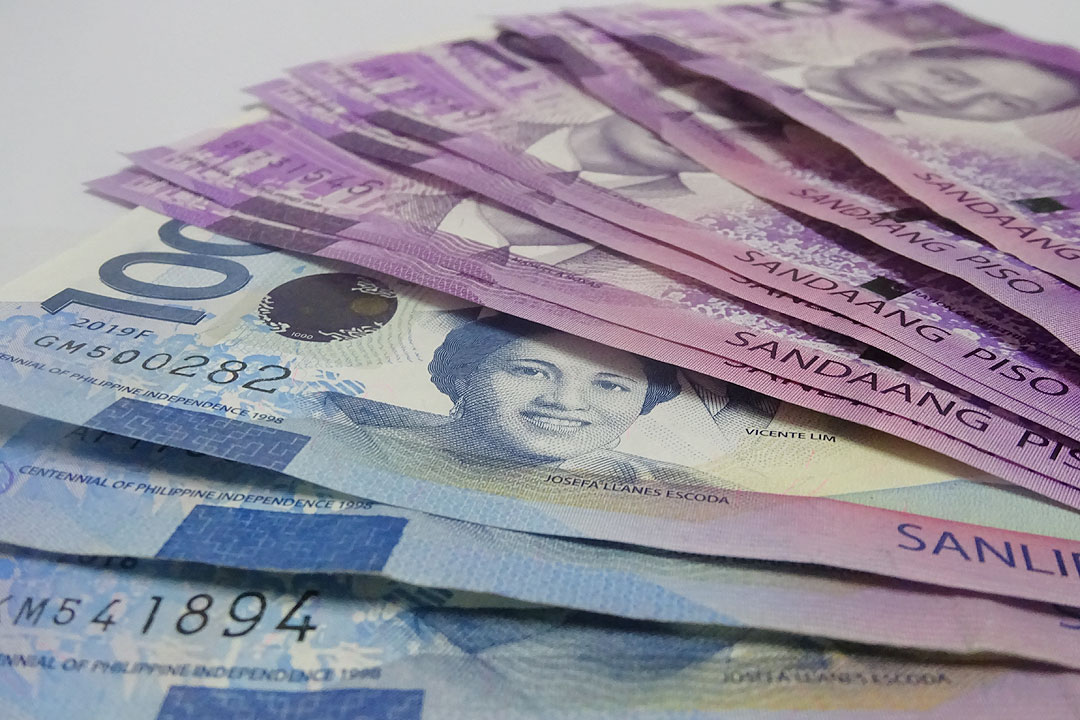NG debt rises to record P12.76 trillion

THE NATIONAL Government’s (NG) outstanding debt rose to a record-high P12.76 trillion at the end of April, as it continued to ramp up borrowings to support economic recovery from the pandemic.
Preliminary data from the Bureau of the Treasury (BTr) showed outstanding debt inched up by 0.7% from end-March’s P12.68 trillion “due to the net issuance of government securities to both local and external lenders and the depreciation of the local currency against the US dollar.”
Year on year, the debt stock jumped by 16.1% from P10.99 trillion.
 The BTr said the debt pile has risen by 8.8% since the year started, after the government borrowed P1 trillion more.
The BTr said the debt pile has risen by 8.8% since the year started, after the government borrowed P1 trillion more.
Of the outstanding debt, the bulk or 70% was obtained domestically, while the rest was from foreign creditors.
Domestic debt stood at P8.94 trillion at end-April, 0.8% up from end-March due to P66.3 billion in net availment of domestic financing. This was 14.4% higher than P7.8 trillion a year earlier, and 9.4% higher than the end-December 2021 level of P8.17 trillion.
Most of the domestic debt stock still came from government securities with P8.64 trillion in April, up 18.8% year on year and 0.8% month on month.
Meanwhile, outstanding external debt jumped by 20.4% year on year to P3.83 trillion at end-April. It inched up 0.4% month on month, and increased by 7.6% from the end-December 2021 level.
“For the period, the increment to external debt was due to the net availment of external loans amounting to P28.56 billion and the effect of peso depreciation against the US dollar amounting to P31.5 billion. This was tempered by adjustments in third currencies amounting to P43.86 billion,” the Treasury said.
The National Government’s guaranteed debt rose by 0.6% month on month to P413.43 billion at end-April due to the net availment of both domestic and external guarantees.
Rizal Commercial Banking Corp. Chief Economist Michael L. Ricafort said the record debt reflected government borrowings made before the elections to fund infrastructure projects, support fuel subsidies and other pandemic response programs.
“In view of the streak of record highs in the government’s outstanding debt in recent months, the intensified tax collections from existing tax laws may not be enough and would inevitably require new tax/fiscal reform measures to curb additional borrowings/debt by the government, especially for the incoming administration,” he added.
Institute for Leadership, Empowerment and Democracy (iLEAD) Executive Director Zy-za Nadine Suzara said the higher debt might be due to the outgoing administration’s infrastructure push.
“It’s hard to say if the ongoing external issues affected the country’s debt, especially since most of the new debt acquired from March to April 2022 were domestic,” she said in a Viber message. “At most, the increased oil prices and overall uncertainty played a role in driving up the need for cash… It’s more plausible that the government is really just cash-strapped to fund the rest of the year’s programs.”
Ms. Suzara said debt is expected to further increase since the government can’t generate enough revenues.
“To plug the budget deficit, the total financing requirement from both domestic and external sources is projected to reach P2.2 trillion. So far, the Treasury’s cash operations report shows that as of end April 2022, it already amounts to around P1.2 trillion,” she said. “If the next administration will not tweak the current fiscal program, then we can expect around P1 trillion more in addition to the current outstanding debt until the end of the fiscal year.”
Bank of the Philippine Islands Lead Economist Emilio S. Neri said debt would be a major challenge for the incoming Marcos administration.
“The new set of economic managers are highly competent and if they can sway our politicians to swallow bitter pills to help us carry out a sound fiscal consolidation plan, we may be able to reverse the deteriorating debt metrics,” he said in a Viber message.
President-elect Ferdinand “Bongbong” R. Marcos, Jr. has tapped Bangko Sentral ng Pilipinas (BSP) Governor Benjamin E. Diokno to head the Finance department.
Mr. Diokno has said he is not in favor of raising taxes even with the record debt pile.
“To me, grow the economy, focus on tax administration first, improve the collection,” he earlier told ABS-CBN News Channel. — Bernadette Therese M. Gadon



